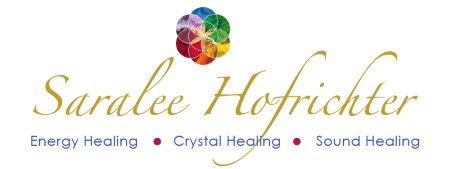Reiki is a gentle and powerful energy healing technique that is gaining more and more recognition around the globe.
In this article, I delve into the essence of Reiki energy healing, uncovering its principles and understanding how it works its magic.
Understanding the principles of Reiki
Reiki is an ancient Japanese practice that aims to balance the energy flow within the body, promoting physical, emotional, and spiritual healing. By laying their hands on or above the body, Reiki practitioners tap into the universal life force energy and channel it to clear blockages and restore harmony.
The beauty of Reiki lies in its simplicity. It can be practiced on oneself and others, making it an accessible and versatile healing modality. Whether you’re dealing with emotional distress, physical ailments, or simply seeking relaxation and stress relief, Reiki can offer profound benefits.
Reiki operates on the principle that everything is made up of energy, and when this energy becomes imbalanced, it can lead to various forms of dis-ease. By harnessing the flow of energy and directing it to areas in need, Reiki helps to restore balance and facilitate the body’s natural healing abilities.
The history and origins of Reiki energy healing
To truly understand how Reiki works, it’s important to explore its history and origins. Reiki was developed by Dr. Mikao Usui in the early 20th century in Japan. Dr. Usui, a spiritual seeker, embarked on a quest to discover the ancient healing techniques used by spiritual masters throughout history.
After years of studying various texts and practicing meditation and fasting, Dr. Usui experienced a profound spiritual awakening on Mount Kurama. He received the Reiki symbols and the ability to heal through the universal life force energy. Dr. Usui then went on to teach and share his knowledge, establishing the Usui Reiki system.
The science behind Reiki energy healing
While Reiki is often considered a holistic or alternative therapy, there is a growing body of scientific research that supports its efficacy. Scientists believe that Reiki works by stimulating the parasympathetic nervous system, which promotes relaxation and activates the body’s natural healing response.
During a Reiki session, the practitioner acts as a conduit for the universal life force energy, allowing it to flow through their hands and into the recipient’s body. This energy is believed to interact with the recipient’s own energy field, promoting balance and harmony.
Studies have shown that Reiki can reduce stress, anxiety, and pain, and improve overall well-being. It has been observed to have a positive impact on the immune system, promoting faster healing and recovery. While the mechanisms behind these effects are not fully understood, the results speak for themselves.
How Reiki works on the physical, mental, and emotional levels
Reiki works on multiple levels of the human experience – physical, mental, and emotional. On the physical level, Reiki helps to relax the body, release tension, and promote the natural healing process. It can alleviate pain, reduce inflammation, and support recovery from injuries or illnesses.
On the mental level, Reiki can help to calm the mind, reduce anxiety, and improve mental clarity. It can also enhance focus and concentration, making it a valuable tool for students, professionals, and anyone seeking to improve their cognitive abilities.
On the emotional level, Reiki can help to release emotional blockages, promote emotional balance, and facilitate emotional healing. It can provide a safe space for processing and releasing unresolved emotions, allowing for greater emotional well-being and resilience.
The benefits of Reiki for overall well-being
The benefits of Reiki extend far beyond the physical, mental, and emotional levels. Reiki is a holistic practice that addresses the whole person – body, mind, and spirit. It can help to restore a sense of wholeness and connection, promoting a deep sense of well-being and inner peace.
Some of the key benefits of Reiki include:
- Stress reduction: Reiki promotes deep relaxation and helps to reduce stress and anxiety.
- Pain relief: Reiki can alleviate pain and discomfort, making it an effective complementary therapy for chronic pain conditions
- Improved sleep: Reiki can help to improve sleep quality and promote restful sleep
- Enhanced self-awareness: Reiki can facilitate self-reflection and personal growth, helping individuals to gain insight into their thoughts, emotions, and behaviors
- Spiritual growth: Reiki is a spiritual practice that can deepen one’s connection to their inner self and the larger universe.
Different Reiki techniques and their applications
Reiki encompasses a wide range of techniques and approaches, each with its own specific applications.
Some of the most commonly used Reiki techniques include:
- Hands-on healing: This is the traditional form of Reiki, where the practitioner places their hands directly on the recipient’s body. It can be used to address physical, mental, and emotional imbalances.
- Distance healing: Reiki can be sent across time and space, allowing for healing to occur even when the recipient is not physically present. This technique is particularly useful for individuals who are unable to receive hands-on Reiki.
- Chakra balancing: Reiki can be used to harmonize and balance the body’s energy centers, known as chakras. This technique can help to restore overall energetic balance and promote well-being.
- Aura cleansing: Reiki can be used to clear and cleanse the aura, the energetic field that surrounds the body. This technique can help to remove energetic blockages and promote a sense of lightness and clarity.
- Reiki meditation: Reiki can be combined with meditation practices, allowing individuals to deepen their connection to the universal life force energy and cultivate a state of inner peace and harmony.
Reiki attunements and becoming a certified Reiki practitioner
If you feel called to deepen your connection to Reiki and share its healing benefits with others, you may consider becoming a certified Reiki practitioner. Reiki attunements are the sacred ceremonies that allow individuals to receive and transmit Reiki energy.
During a Reiki attunement, the Reiki master channels the energy and activates the recipient’s innate healing abilities. This process helps to open the energetic channels and align the recipient with the universal life force energy.
Becoming a certified Reiki practitioner involves completing a series of attunements and training programs. These programs typically cover the history and principles of Reiki, as well as hands-on healing techniques and ethical considerations. Once certified, you can offer Reiki sessions to clients and incorporate Reiki into your own healing practice.
Integrating Reiki energy healing into your daily life
Reiki is not just a healing modality – it is a way of life. The principles and practices of Reiki can be integrated into your daily routine to promote overall well-being and spiritual growth.
Some ways to incorporate Reiki into your daily life include:
- Self-healing: Set aside time each day to practice self-healing with Reiki. This can involve placing your hands on different parts of your body and allowing the energy to flow.
- Meditation: Combine Reiki with meditation practices to deepen your connection to the universal life force energy and cultivate inner peace and clarity.
- Intention setting: Use Reiki to set intentions for the day or for specific situations. Visualize the desired outcome and allow Reiki energy to support the manifestation of your intentions.
- Energetic cleansing: Clear your energetic field and your physical space using Reiki. This can help to remove stagnant or negative energy and create a harmonious environment.
- Reiki-infused rituals: Incorporate Reiki into your daily rituals, such as bathing, journaling, or preparing meals. Infuse these activities with Reiki energy to enhance their healing and transformative effects.
The transformative power of Reiki
Reiki is a gentle and powerful healing modality that has the potential to transform your life. By tapping into the universal life force energy, Reiki can promote physical, mental, and emotional healing, restore balance, and facilitate spiritual growth.
Whether you choose to receive Reiki treatments from a qualified practitioner or embark on the journey to become a certified Reiki practitioner yourself, the benefits of Reiki are vast and profound. Embrace the gentle touch of Reiki and unlock the path to wellness and wholeness.
Reiki offers a gateway to self-discovery, healing, and personal transformation. It is a reminder that we all possess an innate healing power and the ability to create positive change in our lives. So, take a deep breath, open your heart, and allow Reiki to guide you on this transformative journey of healing and growth.

